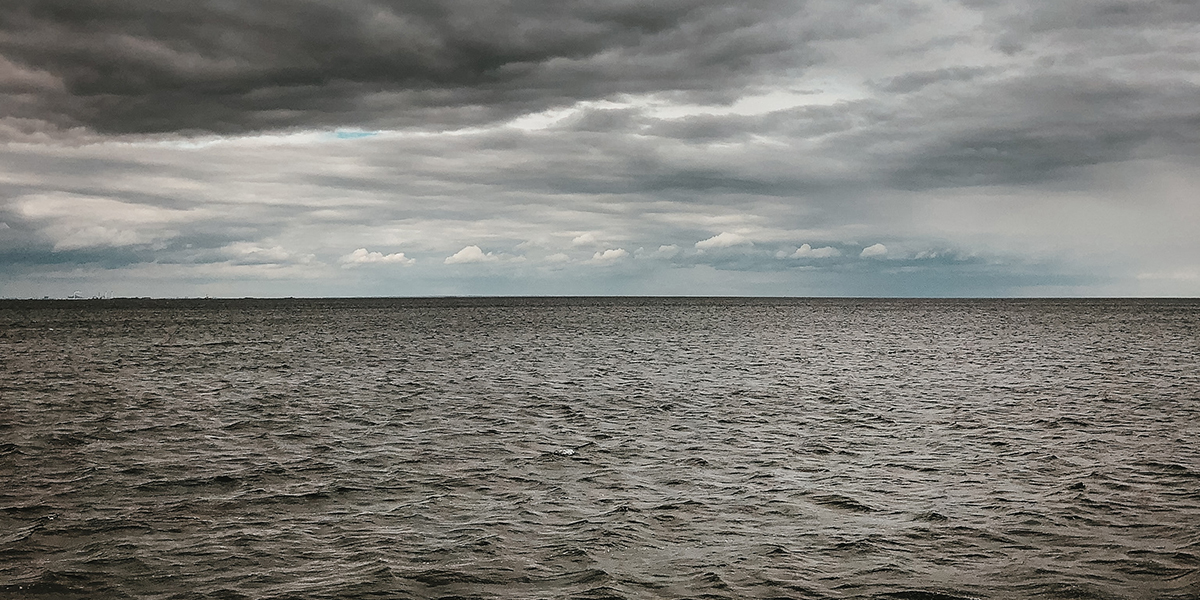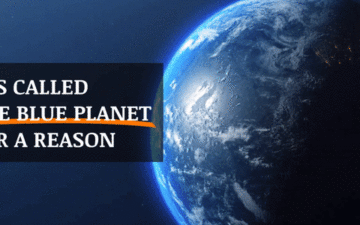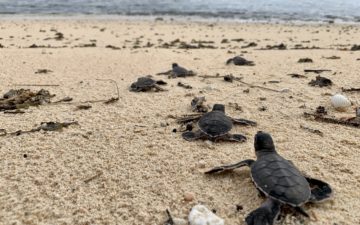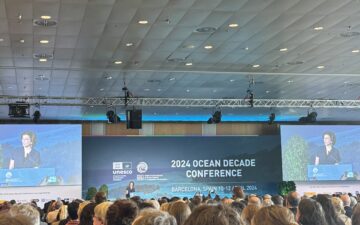Authors: Ruben Zondervan, Leopoldo Cavaleri Gerhardinger, Isabel Torres de Noronha, Mark Joseph Spalding , Oran R Young
Publication Name: International Geosphere‑Biosphere Programme, Global Change Magazine, Issue 81
Publication Date: Tuesday, October 1, 2013
The ocean was once thought to be a bottomless resource, to be divided and used by nations and their people. Now we know better. Ruben Zondervan, Leopoldo Cavaleri Gerhardinger, Isabel Torres de Noronha, Mark Joseph Spalding and Oran R Young explore how to govern and protect our planet’s marine environment.
We humans once thought the Earth was flat. Little did we know that the oceans extended far beyond the horizon, covering about 70% of the planet’s surface, containing more than 95% of its water. Once early explorers learned that planet Earth is a sphere, the oceans morphed into a huge two-dimensional surface, largely uncharted – a mare incognitum.
Today, we’ve tracked courses across every sea and plumbed some of the ocean’s greatest depths, coming to a more three-dimensional perspective of the water that envelopes the planet. We now know that the interconnectedness of these waters and systems means that Earth truly has only one ocean.
While we have yet to comprehend the depth and seriousness of the threats posed by global change to our planet’s marine systems, we know enough to recognise that the ocean is in peril as a result of overexploitation, pollution, habitat destruction and climate change impacts. And we know enough to acknowledge that existing ocean governance is woefully inadequate to address these threats.
Here, we define three major challenges in ocean governance, and then frame the five analytical governance problems that need to be addressed, according to the Earth System Governance Project, in order to protect Earth’s complex interconnected ocean.
Laying out the challenges
Here, we consider three priority challenges in ocean governance: the rising pressures on, the need for enhanced global coordination in governance responses for, and the interconnectedness of marine systems.
The first challenge relates to the need to govern the increasing human uses of marine systems that continue our overexploitation of the ocean’s resources. The ocean is the perfect example of how universal goods can be exhausted even when some protective rules are in place, whether formal laws or informal community self-governance.
Geographically, each coastal nation state has sovereignty over its own coastal waters. But beyond national waters, marine systems include the high seas and the seabed, which come under the United Nations Convention on the Law of the Sea (UNCLOS), established in 1982. The ocean seabed and waters beyond national jurisdictions most often do not lend themselves to informed community self-governance; thus, laws that apply penalties under these circumstances could be more useful to stemming overexploitation.
Cases of maritime commerce, marine pollution, and migratory species and border-crossing fish stocks demonstrate that many issues cut across boundaries of the waters of coastal states and the high seas. These intersections generate a second set of challenges, which require coordination between individual coastal nations and the international community as a whole.
Marine systems also are interconnected with atmospheric and terrestrial systems. Greenhouse gas emissions are changing Earth’s biogeochemical cycles and ecosystems. Globally, ocean acidification and climate change are the most important consequences of these emissions. This third set of challenges requires governance systems capable of addressing connections between major components of Earth’s natural systems in this time of significant and accelerating change.
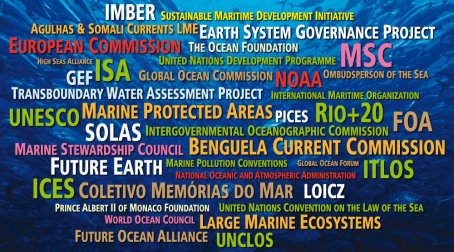
Marine mix: a sampling of international, national and regional government bodies, nongovernmental organisations, researchers, businesses and others that participate in ocean governance issues.
Analysing the problems to tackle
The Earth System Governance Project is taking steps to address the three major challenges we present above. Started in 2009, the decade-long core project of the International Human Dimensions Programme on Global Environmental Change brings together hundreds of researchers around the world. With the help of a task force on ocean governance, the project will synthesise social science research on themes relevant to our challenges, including regime fragmentation; governance of areas beyond national jurisdictions; fisheries and mineral resource extraction policies; and the role of trade or nongovernmental stakeholders (such as fishermen or tourism businesses) in sustainable development.
The task force also will develop the project’s research framework, which prioritises five interdependent analytical problems within the complex issues of ocean governance. Let’s skim through these briefly.
The first problem is the study of overall governance structures or architecture related to the ocean. The “constitution of the ocean”, UNCLOS, lays out the overall terms of reference for ocean governance. Key aspects of UNCLOS include the delimitation of maritime jurisdictions, how nation states should interact with each other, and overall objectives of ocean management, as well as assigning specific responsibilities to intergovernmental organisations.
But this system has become outmoded as humans have become more efficient than ever at harvesting marine resources, and human uses of marine systems (such as oil drilling, fisheries, coral reef tourism and marine protected areas) now overlap and clash. Above all, the system has failed to address the unintended impacts of human activities on the ocean from land and air interactions: anthropogenic greenhouse emissions.
The second analytical problem is that of agency. Today, the ocean and other Earth systems are affected by intergovernmental bureaucracies, local or community-level governments, public-private partnerships and scientific networks. The oceans are also affected by purely private actors, such as large companies, fishermen and individual experts.
Historically, such nongovernmental groups, and in particular hybrid public-private partnerships, have had strong influence on ocean governance. For example, the Dutch East India Company, established in 1602, was granted a monopoly on trade with Asia by the Dutch government, as well as authority usually reserved for states, including the mandate to negotiate treaties, coin money and establish colonies. In addition to its state-like powers over marine resources, the company was first to share its profits with private individuals.
Today, private investors are lining up to harvest natural resources for pharmaceuticals and conduct deep-seabed mining, hoping to profit from what should be considered a universal good. These examples and others make it clear that ocean governance can play a role in levelling the playing field.
The third problem is adaptiveness. This term encompasses related concepts that describe how social groups respond to or anticipate challenges created through environmental change. These concepts include vulnerability, resilience, adaptation, robustness, and adaptive capacity or social learning. A governing system must be adaptive itself, as well as govern how adaptation happens. For example, while the pollock fishery in the Bering Sea has adapted to climate change by moving north, the US and Russian governments seemingly have not: the two nations argue over fishing rights based on geographic location of the fishery and disputed borders of their coastal waters.
Fourth is accountability and legitimacy, not only in political terms, but also in a geographical sense for the ocean: these waters are beyond the nation state, open to all and belonging to none. But one ocean implies the interconnectedness of geography and water masses, peoples, and natural living and inanimate resources. These interconnections place additional demands on problem-solving processes, to deal with diverse stakeholders’ capabilities, responsibilities and interests.
An example is a recent ‘rogue’ ocean fertilization experiment at the Canadian coast, where a private company seeded ocean waters with iron to increase carbon sequestration. This was widely reported as an unregulated ‘geoengineering’ experiment. Who has the right to experiment with the ocean? And who can be penalised if something goes awry? These unfolding conflicts are feeding a thoughtful debate around accountability and legitimacy.
The final analytical problem is allocation and access. Who gets what, when, where and how? A simple bilateral treaty dividing the ocean to benefit two countries at the expense of all others never worked, as the Spanish and Portuguese discovered centuries ago.
After Columbus’ explorations, the two countries entered into the 1494 Treaty of Tordesillas and the 1529 Treaty of Saragossa. But the maritime powers of France, England and The Netherlands largely ignored the bilateral division. Ocean governance at the time was based de facto on simple principles like “winner takes all”, “first come, first served” and “freedom of the seas”. Today, more sophisticated mechanisms are required to share responsibilities, costs and risks related to the ocean, as well as to give equitable access to and allocation of the ocean’s services and benefits.
A new era in understanding
With a heightened awareness of the challenges at hand, natural and social scientists are seeking consilience for effective ocean governance. They also are engaging with stakeholders to conduct their research.
For example, IGBP’s Integrated Marine Biogeochemistry and Ecosystem Research (IMBER) project is developing a framework called IMBER-ADapt to explore policy-making for better ocean governance. The recently established Future Ocean Alliance (FOA) also brings together organisations, programmes and individuals to integrate specific disciplines and their knowledge, in order to improve dialogues on ocean governance and assist policymakers.
FOA’s mission is to “use innovative information technologies to build an inclusive community – a global ocean knowledge network – able to address emerging ocean governance issues promptly, efficiently, and fairly”. The alliance will seek to assist in the earliest stages of decision-making, to enhance the sustainable development of the ocean from the local to the global level. FOA brings together producers and consumers of knowledge and fosters collaboration among numerous organisations and individuals. Organisations include the UN Intergovernmental Oceanographic Commission; the Benguela Commission; Agulhas and Somali Currents Large Marine Ecosystem project; the ocean governance assessment of the Global Environment Facility Transboundary Waters Assessment Programme; the Land-Ocean Interactions in the Coastal Zone project; the Portuguese Directorate General for Ocean Policy; the Luso-American Foundation for Development; and The Ocean Foundation, among others.
Members of FOA, including the Earth System Governance Project, are exploring ways to contribute to the development of an ocean research agenda for the Future Earth initiative. In the next decade, the Future Earth initiative will be an ideal platform to bring together researchers, policymakers and other stakeholders for developing solutions to marine problems.
Together, we can provide the knowledge and tools needed for effective ocean governance in the Anthropocene. This human-affected epoch is mare incognitum – an uncharted sea. As the complex natural systems in which we live change with human impacts, we don’t know what will happen, particularly to Earth’s ocean. But timely and adaptive ocean governance processes will help us to navigate the Anthropocene.
Further Reading
- Biermann F (2012) Greening the United Nations Charter. World Politics in the Anthropocene. Earth System Governance Working Paper No. 21. Lund and Amsterdam: Earth System Governance Project.
- Spalding, Mark J. “Using rights to promote stewardship has a prerequisite: Credible governance”, White Paper: The Ocean Foundation March 2013
- Earth System Governance
- Future Ocean Alliance
